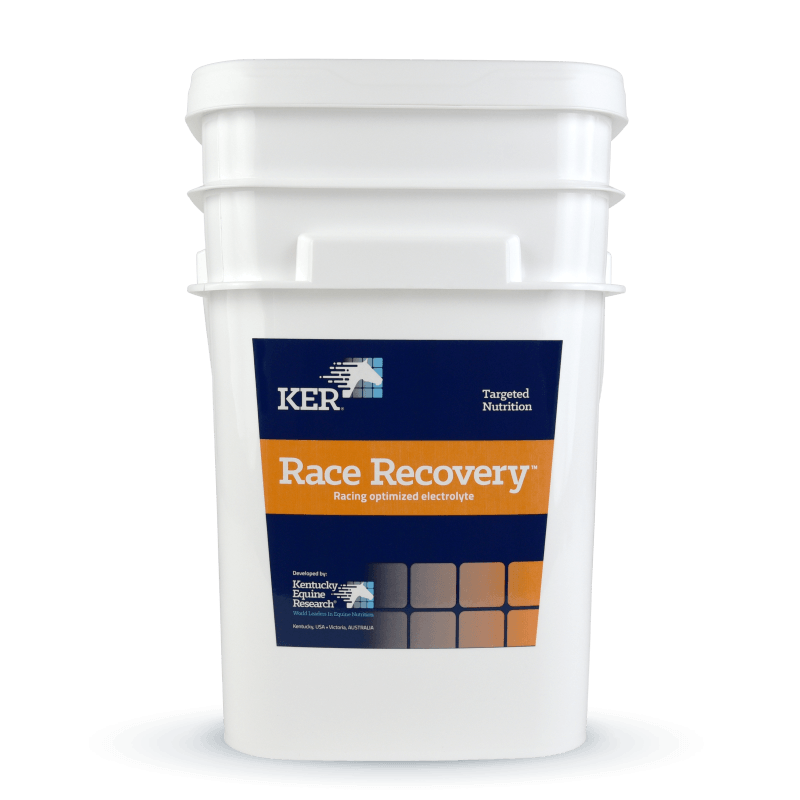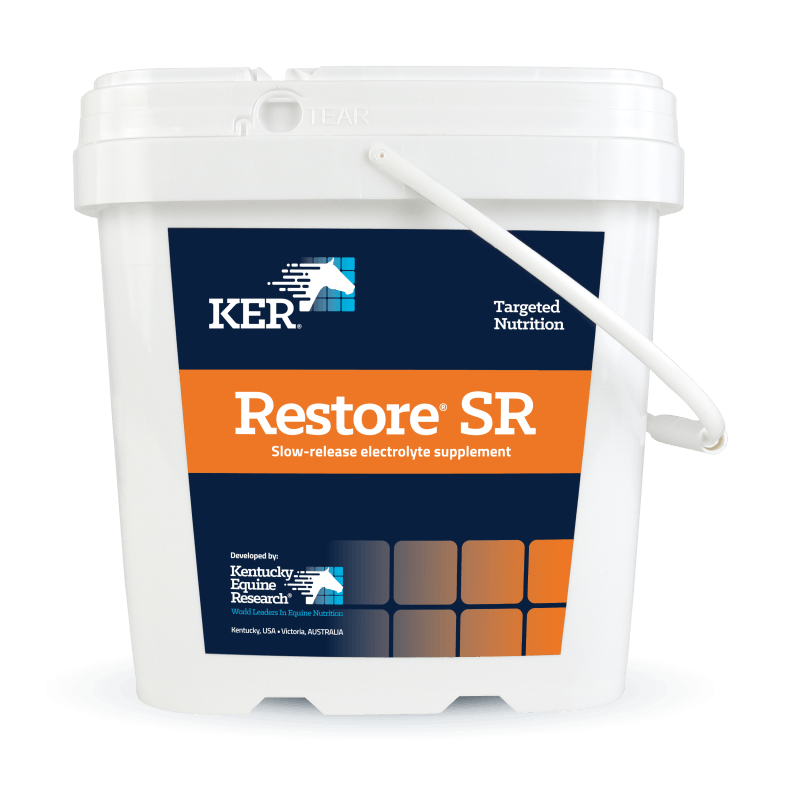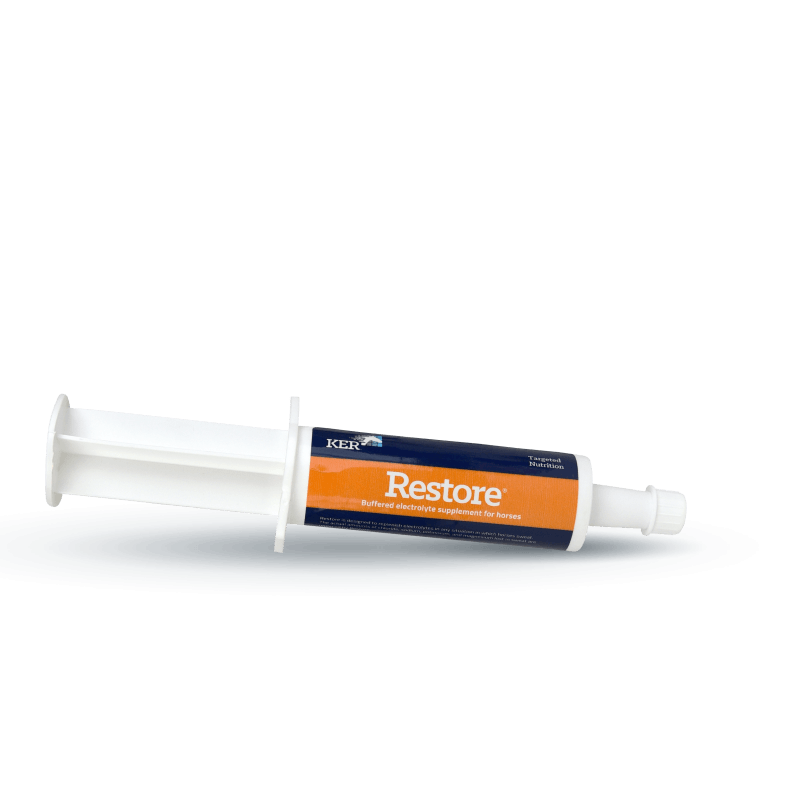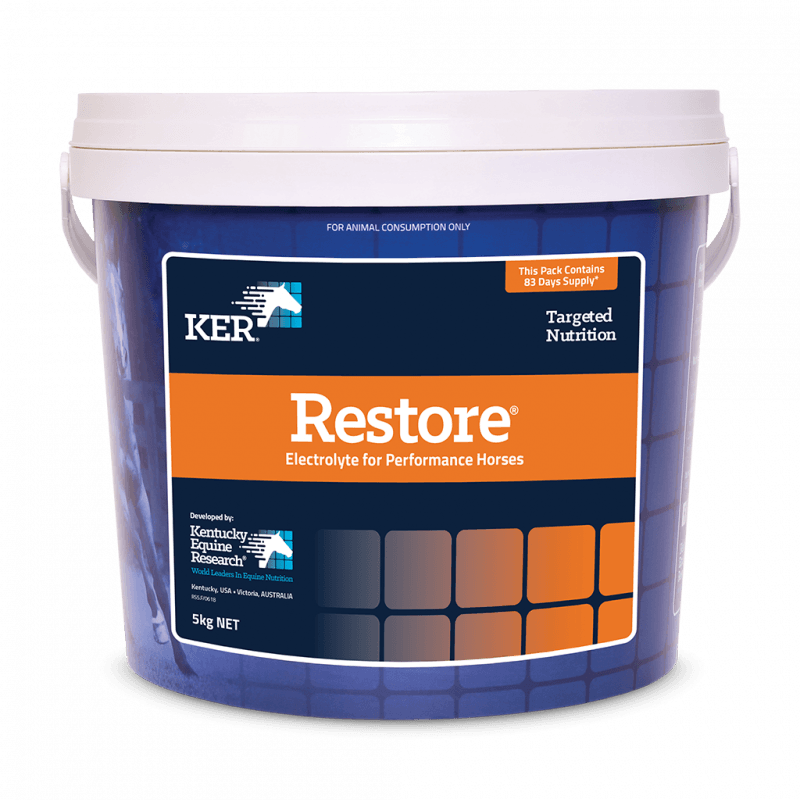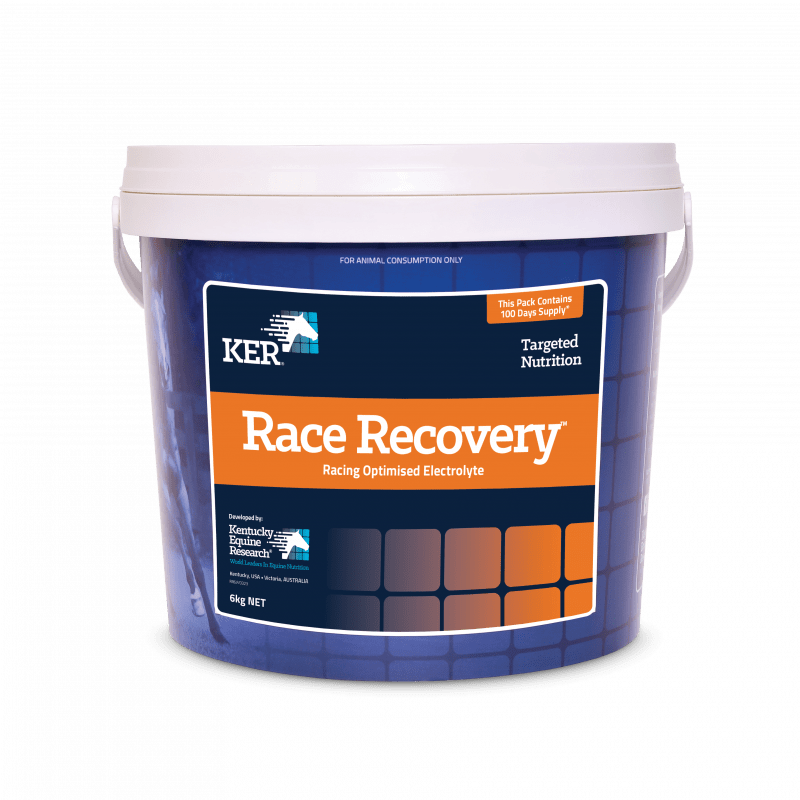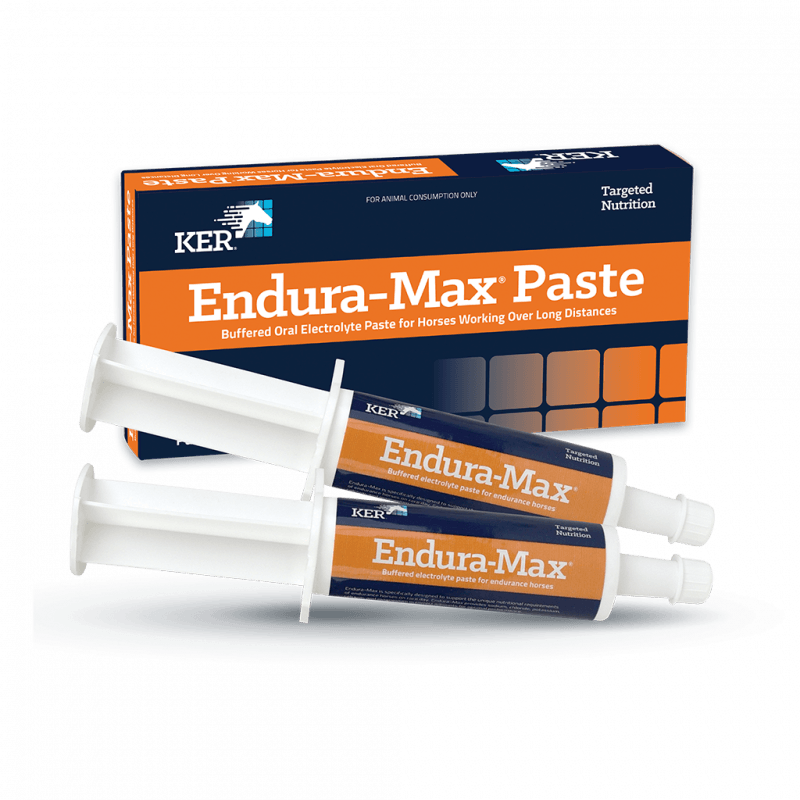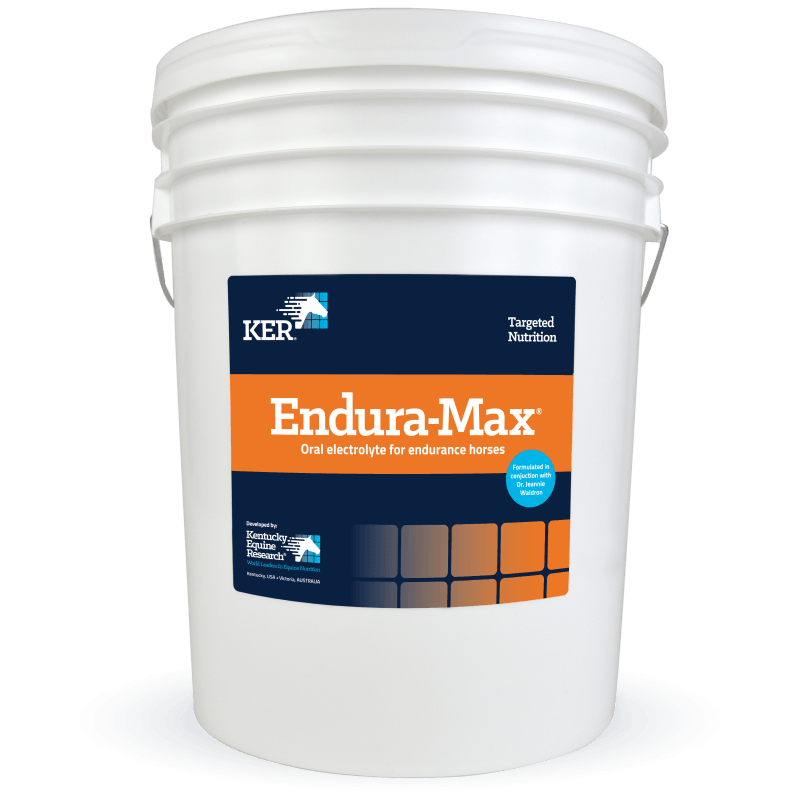Electrolytes
Without electrolytes, the body is not capable of maintaining the right amount of fluid in and around cells. Electrolytes also play key roles in transmission of nerve impulses and muscle contraction.
The electrolytes lost in greatest quantities in sweat are sodium, chloride, and potassium. Smaller quantities of calcium and magnesium are also present in sweat, as are minuscule amounts of other trace minerals.
Horses with insufficient electrolyte concentrations in their body are at risk for earlier onset of fatigue and therefore have less stamina. Signs of more severe dehydration are unsteady gait, uncoordinated muscle contractions, trembling, and muscle weakness. The horse may lose interest in drinking even when dehydrated, because when both water and electrolytes are lost, the physiological trigger that tells a horse when to drink malfunctions.
A well-formulated electrolyte supplement should be primarily sodium chloride (salt). Other ingredients may include sources of potassium, calcium, and magnesium. Sugar is added to some preparations to enhance palatability. Sugar is not necessary for optimal absorption of electrolytes and may excessively dilute the more valuable ingredients delivering needed electrolytes.
Products
